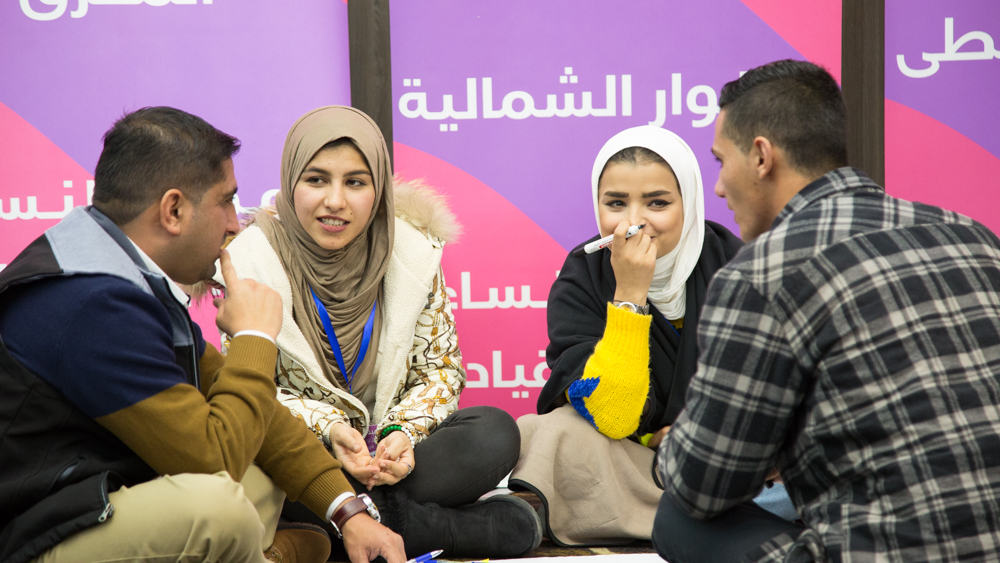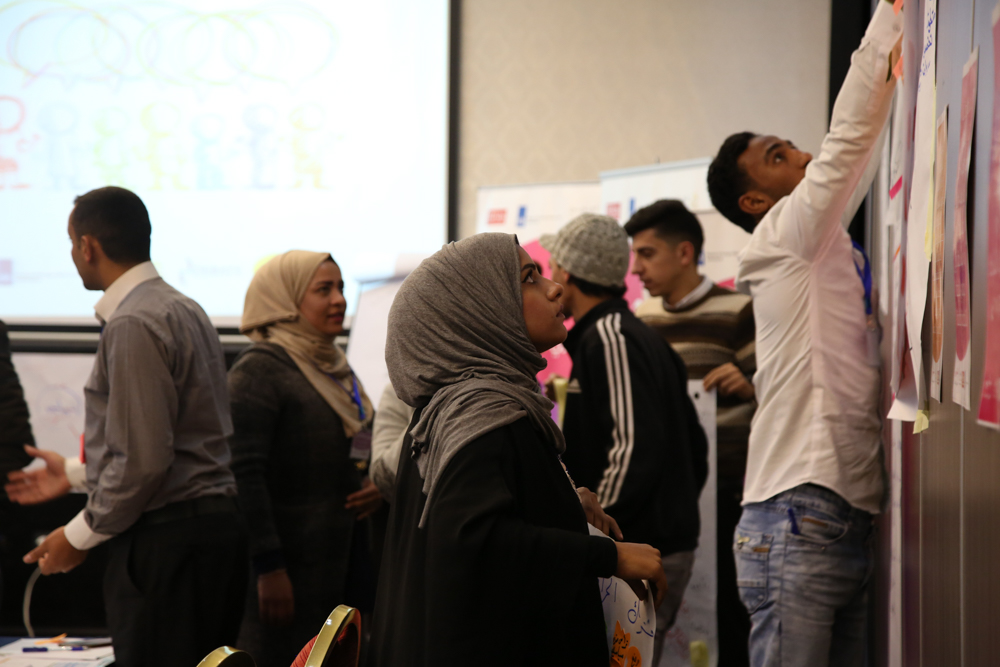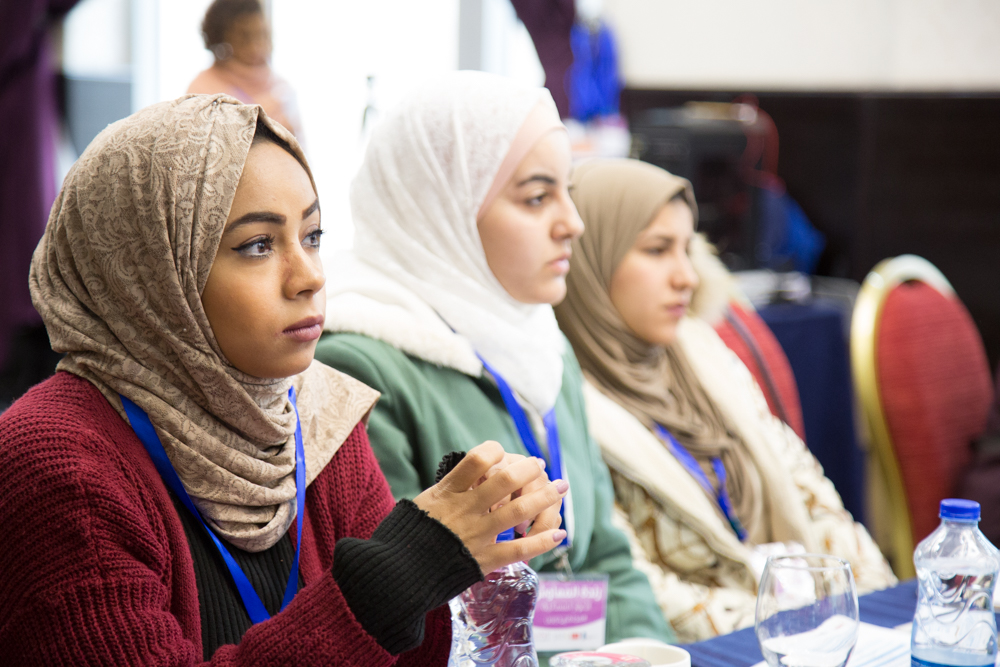Abshiri Project in Jordan tackles women’s challenges in reaching leadership positions
By Noura El-Turk
Abshiri is a new project launched by Jordanian NGO Drabzeen, a Hivos partner in the Women Empowered For Leadership programme. It aims to encourage and strengthen women’s representation, participation, rights and leadership position. The Abshiri project seeks to create active interaction with Jordanians on gender equality by connecting grassroots work with local communities through live Facebook feeds. Local participants and viewers learn about the circumstances surrounding women as well as the means to help empower them.
Phase One: Selecting and training youth ambassadors
Drabzeen launched its first Abshiri Campaign from 4 to 7January 2018, bringing together 21 young participants As Abshiri ambassadors between the ages of 18 and 29 years of age from 7 Jordanian provinces. They were given intensive training on gender sensitivity, women’s rights, women’s political representation, as well as the tools to moderate debates. Exercises included group discussions and debate simulations.
After their training, the Ambassadors returned to their provinces were they launched the second phase of the Abshiri project: the Coffee Talks.
In Jordan there are differing opinions on women’s political representation. Although there is a clear big gender gap in salaries, job opportunities, political and public participation, some people do not believe that there are any gender biases, stereotypes or inequalities between both genders. Furthermore, there is a lack of open platforms that enable people to talk about these topics, thus local communities often are unaware of the political and social challenges that women face, as well as their achievements.

Phase two: Discussing solutions for empowering women in leadership positions
To create a space where these challenges can be debated with local communities, The ambassadors have so far organised 14 coffee talks in the 7 provinces.
Sessions are divided in two coffee talks per province, the first hosting youth and local community members, and the second, hosting local leaders.
A topic is assigned for each province. It is then discussed and participants, facilitated by the ambassadors, come up with solutions that will improve women’s situation. For each province, three solutions are selected for further action.
During the coffee talks, there was much motivation and engagement, and opinions were varied. A clear difference quickly emerged between youth and local leaders. While youth thought that women faced many challenges, most local figures considered women to be equally treated. These differences brought forth diverse and engaging conversations, with ambassadors mediating and guiding the discussion.
The sessions held were all uploaded on Facebook through live feeds to encourage participation and interaction. During each “Coffee Talk” some of the Facebook comments and questions were put forward live allowing the viewers to take part in the debate.
Phase 3: Transforming ideas into initiatives.
Following the last coffee talk in Aqaba province on 21 February 2018, the youth ambassadors convened and submitted 21 solutions from across Jordan. Three of these solutions will be selected and implemented as initiatives.
The three initiatives are chosen by online voting on Facebook (50 points) , the actual Coffee Talk performance (20 points, assessed by the trainers) and a jury decision (based on the idea and presentation, 30 points). Once these initiatives are selected, they are sponsored by Drabzeen for implementation.






